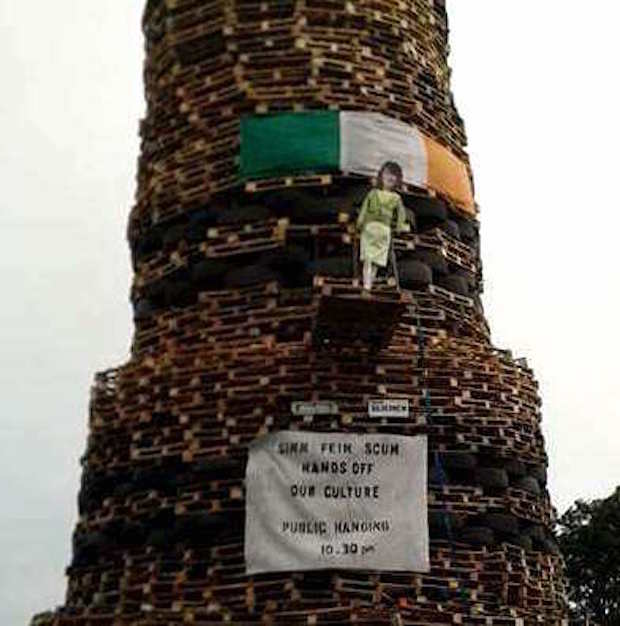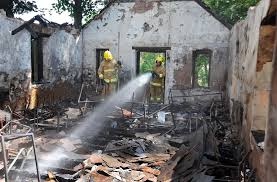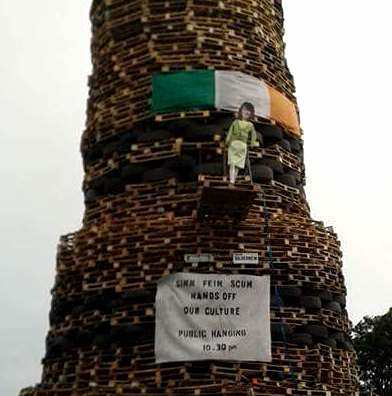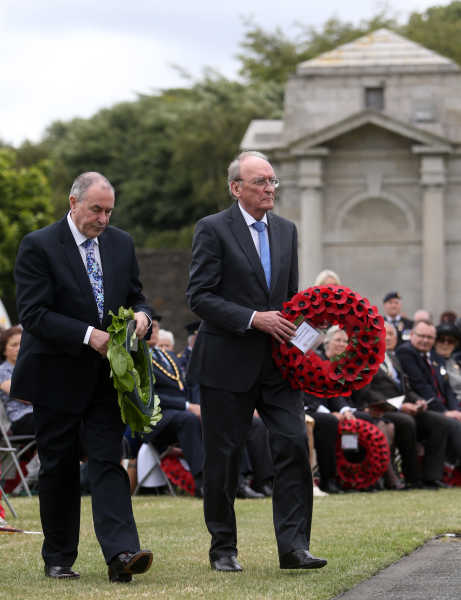16 July 2015
Is a ‘Twelfth’ free from sectarianism possible?

NUMEROUS Eleventh Night bonfires across the North are now bywords for sectarian hate crime – pure and simple.
Despite the efforts to rebrand the Twelfth celebrations overall as ‘Orangefest’ – and as inclusive and cultural events – a real question arises as to whether and when what has come to be known as the Twelfth can and will become free from the actuality and connotations of sectarian and racist hatred.
This is a question and challenge for society as a whole.
That answer can be provided when those in positions of political, religious, cultural and community leaderships take action to confront such sectarian and offensive behaviour.
Several unionist areas have shown that can be done. This is to be acknowledged and commended.
However, an unambiguous zero tolerance must be shown against sectarian mind-sets and actions by all sections of our community and towards every form of sectarian hatred – regardless of the source – because, ultimately, our society as a whole and quality of life is damaged and undermined.
The deep-rooted levels of sectarianism in Northern society were graphically in evidence during the last fortnight.

● Ballytyrone Orange Hall arson attack
Disgraceful attacks by bigots on Orange halls in Counties Antrim and Armagh were obviously carried out in the run-up to the annual Twelfth parades in order to incite sectarian tensions. Those responsible sought to provoke a reaction, trying to push us all into a sectarian race to the bottom of permanent confrontation.
Separately, in some unionist areas, Nazi, Confederate and Zionist flags were erected alongside others associated with unionist paramilitary groups.
Elsewhere, unionist flags were again erected in mixed community areas as a clear attempt to intimidate citizens from different cultural, political, ethnic and religious backgrounds.

● Bonfire at Moygashel ahead of burning an effigy of Sinn Féin former MP Michelle Gildernew and an Irish Tricolour
The Twelfth this year was overshadowed by two situations. The first is the violence on the Woodvale Road in defiance of the Parades Commission’s determination to restrict the evening Orange march.
The second is the use of bonfires once more as sectarian pyres to burn republican political and Catholic religious effigies, Sinn Féin and other parties’ election posters, Irish flags and Gaelic cultural emblems.
These activities are obscene. No excuse or mitigation is possible.
The suggestion used by some publicly that it’s better that posters instead of politicians are being burned is absolutely indefensible.
It is time for robust anti-sectarian and incitement to hatred legislation.
Sectarianism needs to be stamped out and the bigots wedded to sectarian violence and vandalism dealt with by effective legislation, the police and the courts.
But still more is needed.
Commemorations and remembrance have become causes, excuses and justification for division and confrontation.
That will only stop when an inclusive and ‘Uncomfortable Conversation’ takes place in the North involving all sides on what an agreed culture of commemoration and remembrance should look like, and the centrality of mutual respect, parity of esteem and equality to that.
Mind-sets and behaviour have to change.
There is an urgent need across society in the North (and also in the South) to get to a point where all sides acknowledge and treat with due respect our diverse cultural and political differences and divergent historic and more recent narratives of political conflict.
The participation by Sinn Féin politicians at the Royal British Legion’s ceremony of remembrance at Islandbridge in Dublin this year was a conscious contribution to the process of developing increased understanding and tolerance.

● Sinn Féin MLA Mitchel McLaughlin as Speaker of the Assembly, and Ceann Comhairle Seán Barrett, lay wreaths at the British Legion's remembrance ceremony in Dublin in July
None of us have anything to fear from the exercise of mutual respect and in fact much to learn from each other and our differing political and cultural traditions.
Reconciliation, healing and a shared future is the only way forward. It is time for that agenda to have primacy, particularly in the North.
Forming a coalition for reconciliation from within all sections of society and taking that agenda forward would be an important start.
Follow us on Facebook
An Phoblacht on Twitter
Uncomfortable Conversations

An initiative for dialogue
for reconciliation
— — — — — — —
Contributions from key figures in the churches, academia and wider civic society as well as senior republican figures





